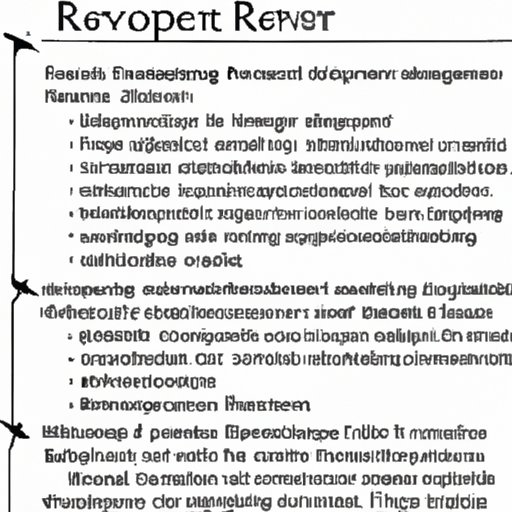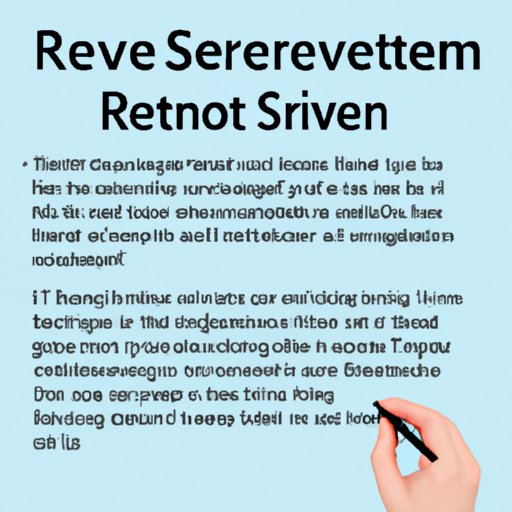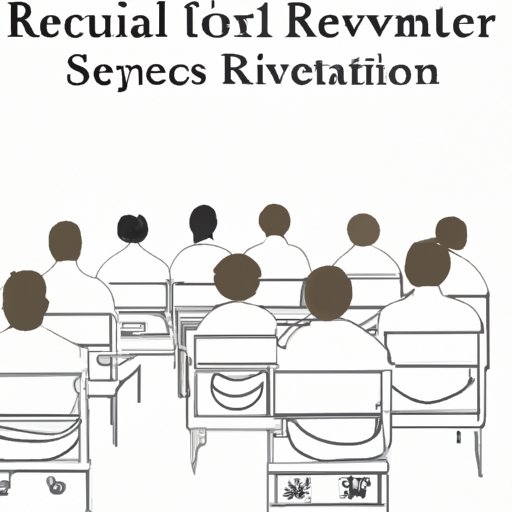Introduction
A review article in science is a comprehensive summary of current literature on a specific topic. It surveys the existing research from journals, books, and other sources, synthesizing the information into an organized overview of the current state of knowledge. The purpose of a review article in science is to provide a detailed and up-to-date summary of recent research in a particular area.

Structure of a Review Article in Science
Review articles in science typically follow a standard format that includes an introduction, literature review, analysis and discussion, and conclusion. The introduction provides an overview of the topic, including its importance and relevance to the field. The literature review section summarizes the existing research on the topic, discussing key findings, trends, and gaps in the literature. The analysis and discussion section then goes into more detail, examining the research in greater depth and exploring its implications. Finally, the conclusion summarizes the main points of the article and looks to the future of the field.

Benefits of Writing a Review Article in Science
Writing a review article in science can be beneficial for both authors and readers. For authors, it can increase their visibility in the scientific community and establish their expertise in the field. Additionally, it can help them gain credibility as a researcher and boost their chances of getting published in prestigious journals. For readers, review articles provide an accessible and comprehensive overview of a particular topic, making it easier to understand and stay up-to-date with the latest research.

Audience for a Review Article in Science
Review articles in science are read by a variety of audiences, including academics, researchers, and professionals. Academics use them to stay informed about developments in their field and to gain insight into new research. Researchers use them to identify potential areas of study and to inform their own research. Professionals use them to stay abreast of the latest trends and developments in their industry.
Tips for Writing an Effective Review Article in Science
Writing an effective review article in science requires careful planning and research. When choosing a topic, it is important to select one that is relevant and timely. Once a topic is chosen, it is important to analyze existing research and identify key findings, trends, and gaps in the literature. When writing the article, it is essential to use clear and concise language and to follow standard formatting guidelines. Additionally, proper citation of sources is critical for maintaining accuracy and credibility.
Conclusion
A review article in science is a comprehensive summary of current literature on a specific topic. It is structured into an introduction, literature review, analysis and discussion, and conclusion. Writing a review article in science can be beneficial for both authors and readers, as it can increase visibility, establish expertise, and gain credibility. It is read by a variety of audiences, including academics, researchers, and professionals. To write an effective review article in science, it is important to choose a relevant topic, analyze existing research, use clear and concise language, follow standard formatting guidelines, and utilize appropriate citation style.
(Note: Is this article not meeting your expectations? Do you have knowledge or insights to share? Unlock new opportunities and expand your reach by joining our authors team. Click Registration to join us and share your expertise with our readers.)
